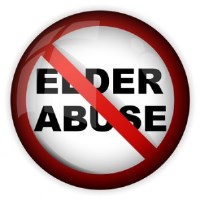 According to the Administration on Aging, hundreds of thousands of older adults are subject to abuse, neglect, and exploitation each year. The victims are older, frail, and vulnerable. They are often in the vulnerable position of depending on others to meet their most basic needs. Abusers of older adults are both women and men, and may be family members, friends, or other people they trust.
According to the Administration on Aging, hundreds of thousands of older adults are subject to abuse, neglect, and exploitation each year. The victims are older, frail, and vulnerable. They are often in the vulnerable position of depending on others to meet their most basic needs. Abusers of older adults are both women and men, and may be family members, friends, or other people they trust.
“Elder abuse” is a phrase that refers to any intentional act by a caregiver or other person that causes harm to a vulnerable senior. Legislatures in all 50 states have passed some form of elder abuse prevention laws. Abuse of this nature includes:
- Physical Abuse—such as slapping, bruising, or restraint by physical or chemical (i.e. pharmaceutical) means
- Sexual Abuse
- Neglect—failure by responsible individuals to provide food, shelter, health care, or protection
- Exploitation—illegal or misuse of money or property
- Emotional Abuse
- Abandonment
The unfortunate thing is that elder abuse often goes unnoticed or unreported – but there are tools that professionals or loved ones can use to screen for elder abuse. One of those tools is the Elder Abuse Suspicion Index (EASI). The EASI was developed specifically to help family physicians detect victims of elder abuse. According to McGill:
The EASI was validated for enquiry by family physicians of patients in their offices aged 65 and over, with a Folstein MMSE score of 24 or above. The EASI is comprised of only six questions and is rapid to administer. The first five are asked by the doctor and answered by the patient in a YES / NO format. The sixth question is answered by the doctor, based on his or her observations of the patient. EASI completion commonly takes only two to five minutes. All six questions should be queried in the order in which they appear in the EASI. A response of YES on one or more of questions 2-6 should raise concern about mistreatment.
The Elder Abuse Suspicion Index is available for download right here.
The EASI was published here with permission from Mark J. Yaffe, Professor, Department of Family Medicine and McGill University and St. Mary’s Hospital Center
